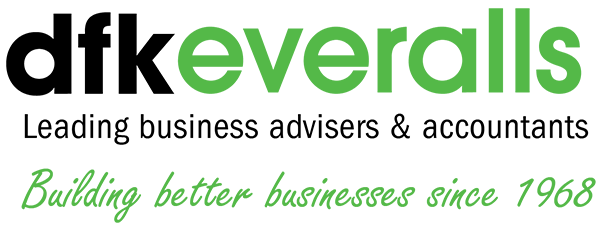
Taxation for Deceased Estates
Compassionate, practical support for Executors, Administrators & families
When someone passes away, there’s more to do than paperwork. You need a clear plan, straightforward answers, and a team that can coordinate tax, estate administration, and family needs without using jargon. That’s what we do.
Who we help
- Executors & Administrators finalising a loved one’s affairs
- Beneficiaries wanting to manage an inheritance wisely
- Families with complex affairs (multiple properties, investments, SMSFs, trusts)
- Professional advisers (lawyers, financial advisers) seeking a tax/estate partner
How we help
Administering a deceased estate involves more than just paperwork. There are different tax returns to consider, decisions about how assets are transferred, and opportunities to make distributions more tax-effective. Our role is to simplify the process and handle the details, while keeping you informed and supported.
What we handle (end-to-end)
1) Final “Date of Death” tax return
We assess whether a final personal return is required and prepare it (from 1 July to the date of death), capturing income and deductions up to that date.
2) Set up & lodge Deceased Estate trust tax returns
We obtain the TFN (if required), establish the Deceased Estate for tax purposes, and prepare annual trust returns during administration, including distributions and withholding where needed.
3) Capital gains tax & asset transfers
We advise on CGT outcomes when assets are sold by the estate versus transferred in specie to beneficiaries, including main residence concessions and timing considerations.
4) Superannuation lump sums & ETPs
We help you understand tax treatment of super death benefits and employment termination payments paid to the estate or directly to beneficiaries.
5) Franking credits, losses & credits
We assess opportunities such as franking credit refunds to the estate and confirm treatment of any pre-existing losses.
6) Structuring distributions
Where the Will allows flexibility, we model tax-effective strategies for distributing cash vs. assets to adult children, minors, foreign residents and charities.
7) Testamentary trusts & intergenerational planning
Working with your solicitor, we implement and administer testamentary trusts, aligning them with your family wealth goals.
We coordinate with your solicitor on probate, the Will, and asset transfers. You’ll have one point of contact and a clear checklist.
What to expect
Every estate moves at the pace of the legal process and the assets involved. As a guide, you’ll typically see these phases:
- Getting started: an initial meeting to review the Will and assets, apply for a TFN if required, and gather details from banks, registries and platforms
- Compliance catch‑up: any outstanding personal returns, plus establishing the estate return if income arises
- Administration: ongoing asset realisations or in‑specie transfers, CGT review, interim distributions
- Finalisation: modelling and executing final distributions, lodging final returns, closing registrations
Timeframes vary widely, depending on the timing of probate, property sales, superannuation processing, and any disputes. Timeframes vary widely, depending on the timing of probate, property sales, superannuation processing, and any disputes. We keep the tax side progressing and ensure you are always aware of the next steps.
Fees & scope
We’re upfront about our fees. After the initial meeting, we’ll outline the scope and provide either a fixed-fee or stage-based proposal, so there are no surprises. Depending on your needs, typical packages include:
- Essentials: Final return + TFN + first estate return
- Complete Administration: All annual returns, CGT modelling, distribution planning, beneficiary briefings
- Testamentary Trust Setup/Review: Tax registrations, distribution policies, year-end compliance
FAQs
Not always. We assess tax return requirements based on prior lodgments, taxable income, and withholding.
Within the first three income years, estate returns are generally required if the estate earns income above the tax-free threshold, has presently entitled beneficiaries, or has non-resident beneficiaries. From year four, returns are required if any income is earned.
For the first three income years, estates generally access individual marginal rates (including the tax-free threshold). From year four, different rates apply, and the threshold no longer applies.
No. Tax losses die with the individual and do not pass to the estate or beneficiaries.
Franking credits received by the estate may be refundable through the estate’s tax return.
It depends on the provisions in the Will, beneficiaries’ preferences and tax residency and tax implications. We’ll model the options and advise. Refer to the ATO for the latest information.
Superannuation lump sums paid to dependants are generally tax-free, but payments to non-dependants may be taxed. Where paid to the estate, we ensure correct treatment in the estate return.
Why DFK Everalls
Choosing the right adviser at such a sensitive time makes all the difference. At DFK Everalls, we combine technical expertise with genuine care:
We provide holistic and comprehensive advice that considers your business, super, investments and family wealth together.
We explain complex estate and tax issues in plain English, and keep you updated at every step.
We’re experienced with complex estates involving multiple entities, foreign beneficiaries or trusts.
We work seamlessly with your solicitor and financial adviser so you have one coordinated team supporting you.
Related services
We don’t just help with estate tax. Our broader services ensure beneficiaries and families are supported for the long term:
Financial planning for beneficiaries — helping with debt reduction, investment strategies and super contributions.
SMSF & pension advice for surviving spouses — ensuring super and pensions are structured tax-effectively.
Business succession & structuring — including trust deed reviews, asset-protection strategies and succession planning
Next Steps
Finalising a deceased estate is never just about forms and tax returns — it’s about supporting families, honouring wishes, and making sure wealth is passed on wisely. Our role is to make the process as smooth and tax-effective as possible, working alongside your solicitor and advisers to ease the burden.










